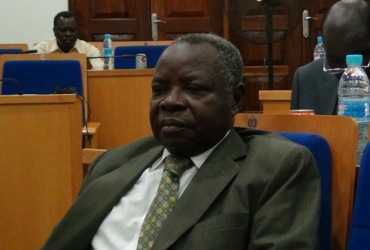South Sudan’s finance minister says centralized tax collection system necessary
October 28, 2012 (JUBA) – South Sudan’s Minister of Finance and Economic Planning, Kosti Manibe Ngai, defended on Friday the centralized system of tax collection in the country after threats by the Central Equatoria State governor to pull his state out of the centralized system.

He said his state has lost millions of South Sudanese pounds to this new arrangement where the state’s share of revenues had fallen sharply due to the centralized tax collectors who do not remit the money to the government’s coffers.
However finance minister Ngai in his response to governor Konga in a broadcasted statement on South Sudan TV on Friday said the centralized system of tax collection was necessary and should continue as it has avoided “anarchy” in the previous random tax collection system by different levels of government in the country.
He said too many self-appointed tax collectors had previously emerged from different levels of government and institutions including unauthorized individuals who collected taxes unprofessionally and illegally.
Lack of taxation revenues is widely blamed for the delay of salaries of both the civil servants and constitutional post holders. Employees of different institutions across the country have not received two-month salaries beginning from September.
The minister however refuted lack of revenues as the cause for the delay of salaries and instead blamed it on slowness by individual ministries and institutions to process their respective requests to release the salaries from the ministry of finance.
He said the money was available and ready for disbursement if requests were made by the individual institutions.
South Sudan lost 98% of its income in January when it stopped exporting oil through neighbouring Sudan, accusing Khartoum have confiscating its oil entitlements worth about US$815m and stops oil production.
In August 2012 the two countries, under the facilitation of the African Union High Level Implementation Panel reached a deal, which could see the young nation pay US$9.10 for every barrel of oil produced in Upper Nile and $11.00 for every barrel produced in Unity State. In addition Juba also offered $3 billion as a transitional financial assistance to Sudan.
Under the final deal signed on September 27, South Sudan will pay between $9.10 and $11 a barrel to export its crude through the north. Juba will also pay $3.08 billion to help Sudan overcome the loss of three quarters of oil production due to southern secession.
(ST)
